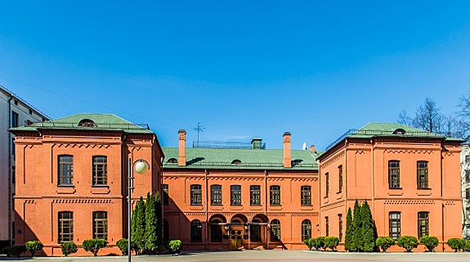Press releases
BSU wins contest to join UK’s Global Challenges Research Fund project
 MINSK, 21 May (BelTA) – The Belarusian State University (BSU) has won the contest held by the Global Challenges Research Fund (GCRF) of the UK research councils, BelTA learnt from the press service of the university.
MINSK, 21 May (BelTA) – The Belarusian State University (BSU) has won the contest held by the Global Challenges Research Fund (GCRF) of the UK research councils, BelTA learnt from the press service of the university.
The Belarusian State University joined the project Compass (Comprehensive Capacity-Building in Eastern Neighborhood and Central Asia: research integration, impact governance and sustainable communities). “That became possible after winning the contest of the Global Challenges Research Fund of the UK’s research councils. Out of over 500 applications, only 37 were upheld, including that of the BSU,” the press service noted.
The solemn opening ceremony and a conference to introduce the project will take place at the BSU on 22 May. Taking part in the event will be representatives of partner universities from the United Kingdom, Belarus, Azerbaijan, Uzbekistan and Tajikistan, as well as members of the Advisory Board of Compass, representatives of diplomatic missions working in Belarus, the European Commission, the UK’s research councils, leading researchers from the United Kingdom, Germany, Russia and Belarus. The same day the major cooperation guidelines within the Compass project will be discussed.
The BSU press service noted that the project’s stakeholders include the University of Kent (UK) that acts as a coordinator, the University of Cambridge (UK), ADA University from Azerbaijan, Tajik National University, University of World Economy and Diplomacy (Uzbekistan).
The project aims to study the formation of sustainable communities, their resilience towards external shocks. Another task is to expand knowledge about the region and to support a number of initiatives, including Minsk Dialogue. Priority tasks include establishment of ‘hubs of excellence’ at leading universities of Eastern Europe and Central Asia, and development of strategic research and educational partnerships with universities of the United Kingdom.
The project is set to run until 2021. The BSU is to carry out research and share best practices in the field of education, efficient governance amidst IT development, migration processes and regional security. There are plans to publish joint research and education papers and elaborate training courses and programs in English. The parties will also consider running joint master’s degree programs.







 print version
print version make home page
make home page add to bookmarks
add to bookmarks

